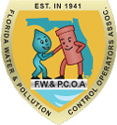Category Archives: Current News
Statement from AWWA CEO David LaFrance on Final Lead and Copper Rule Improvements
The U.S. Environmental Protection Agency (EPA) has released its final Lead and
Copper Rule Improvements (LCRI) rule. David LaFrance, AWWA chief executive
officer, issued the following statement:
“The protection of public health is the top priority for AWWA—it guides our daily
work and the work of thousands of water professionals across North America. We
support strong protections for water consumers today as we strive for a future
where lead is no longer in contact with the water we drink.
The release of the LCRI is another important step in our nation’s efforts to reduce
exposure to lead from all sources. The AWWA is committed to the complete
replacement of lead service lines nationwide–in their entirety–as quickly as
feasible. We see this as an achievable goal and an opportunity for water utilities
to strengthen public trust with the households they serve.
Water systems nationwide are nearing completion of their initial lead service line
inventories and are sharing them with their communities. Updating these
inventories over time, as required by the LCRI, is critical to assuring continued
progress on lead line removal and building a shared understanding of where lead
risks remain.
As we review the technical details of the lengthy rule, we anticipate there will be
challenges to overcome. For example, in many communities, lead service lines are
partly on private property and owned by the property owner rather than the
utility. The new rule requires water utilities to replace service lines under their
“control.” We share EPA’s desire to remove lead service lines in their entirety;
however, this portion of the rule needs further explanation to assure water
utilities are operating within their legal authority.
We also recognize that the LCRI poses cost challenges, particularly for households
with lower incomes. The Biden Administration’s announcement of $2.3 billion in
additional funding for lead line replacement, the $15 billion made available
through the Infrastructure Investment and Jobs Act (Bipartisan Infrastructure
Law), and loan programs like the Water Infrastructure Finance and Innovation Act (WIFIA) are all helpful in closing the funding gap. It’s estimated the cost of
replacing lead service lines nationwide could top $90 billion, and ltimately, most
of these costs will fall to consumers through higher water bills. The LCRI comes on
the heels of a recently finalized per- and polyfluoroalkyl substances (PFAS) rule
that will also cost billions of dollars annually. Additional assistance for consumers,
particularly those with lower incomes, will be necessary to maintain water
affordability.
The AWWA is committed to helping its members assess and understand the LCRI
requirements. We are proud to share success stories from our members about
overcoming barriers to lead service line replacement, improving corrosion control
practices, collaborating with community partners, and communicating about lead
with clarity and transparency.
We will evaluate the rule in greater detail and continue to provide insights to
members and others in the industry.”
EPA Announces New Final Regulations for Lead and Copper Rule
The U.S. Environmental Protection Agency (EPA) has issued a final rule requiring
drinking water systems across the United States to identify and replace lead pipes
within 10 years. The Lead and Copper Rule Improvements (LCRI) also require
more-rigorous testing of drinking water and a lower threshold requiring
communities to take action to protect people from lead exposure in water. In
addition, the final rule improves communication within communities so that
customers are better informed about the risk of lead in drinking water, the
location of lead pipes, and plans for replacing them.
Alongside the LCRI, EPA is announcing $2.6 billion in newly available drinking
water infrastructure funding through the Bipartisan Infrastructure Law. This
funding will flow through the Drinking Water State Revolving Fund (DWSRF) and is
available to support lead pipe replacement and inventory projects. Additionally,
49 percent of the funding must be provided to disadvantaged communities as
grant funding or principal forgiveness that does not have to be repaid.
The EPA has also announced the availability of $35 million in competitive grant
funding for reducing lead in drinking water. Communities are invited to apply
directly for grant funding through this program. Additional federal funding is
available to support lead pipe replacement projects and EPA has developed
a website identifying available funding sources.
The LCRI establish achievable, common-sense practices that have been
implemented by several states and cities. The public health and economic
benefits of the final rule are estimated to be up to 13 times greater than the
costs, and together with new funding from the Bipartisan Infrastructure Law,
water systems will be able to accelerate removal of lead pipes.
For more information go to www.epa.org.
WateReuse Awards for Excellence: Nominate a Leader Today!

Deadline: Oct. 2, 2024
From public utilities to consultants and researchers, the water reuse community is defined by leaders and innovators. Now is your chance to give them their due.
Nominate a water reuse program or leader for a 2025 WateReuse Award for Excellence! The Awards for Excellence recognize WateReuse members, their projects, and their partnerships that have made significant contributions in advancing water reuse.
Awards will be announced during a special awards ceremony at the 2025 WateReuse Symposium, to be held March 16-19, 2025, in Tampa. Submit your nomination by October 2! For categories, guidelines, and more information go to membership@watereuse.org.
Interior Department Provides $325M to Increase Access to the Outdoors
Investment from the Land and Water Conservation Fund is largest in 45 years;
Florida to receive more than $15M
Laura Daniel-Davis, acting deputy secretary for the U.S. Department of the
Interior, announced the distribution of $325 million from the Land and Water
Conservation Fund (LWCF) Stateside Assistance Program to all 50 states, U.S.
territories, and the District of Columbia—the largest annual distribution from the
program since 1979. Investments from the LWCF are helping support
the ”America the Beautiful” initiative by funding locally led outdoor recreation
and conservation projects that protect and enhance access to America’s great
outdoors.
In 2024, Florida will receive $15, 748, 651. “The administration is deeply committed
to ensuring that all Americans, nomatter where they live or how much money they earn,
can enjoy the outdoors,”said Daniel-Davis. “The Land and Water Conservation Fund is
helping to deliver on that commitment through locally led and community-driven projects that are
creating greener neighborhoods, more recreational opportunities, and improved
access to nature.”
The LWCF was established by Congress in 1964 to fulfill a bipartisan commitment
to safeguard natural areas, water resources, and cultural heritage, and provide
recreation opportunities to all Americans. The fund helps strengthen
communities, preserve history, and protect the national endowment of lands and
waters. Since its inception in 1965, the LWCF State and Local Assistance Program
has funded more than 46,000 projects in every county in the U.S.
In 2020, Congress permanently funded the LWCF at $900 million per year with
wide bipartisan support through the Great American Outdoors Act, which was
signed four years ago.
At no cost to taxpayers, the LWCF, administered by the National Park Service
(NPS), supports increased public access to and protection for federal public lands
and waters—including national parks, forests, wildlife refuges, and recreation
areas—and provides matching grants to tribal, state, and local governments to support the acquisition and development of land for public parks and other
outdoor recreation sites.
“Communities in every corner of the nation have benefited from the Land and
Water Conservation Fund’s incredible investments,” said Chuck Sams, director of
NPS. “With increased investment into locally led efforts, the Land and Water
Conservation Fund continues to represent the best of America while putting
communities first.”
Allocations within the LWCF Stateside Assistance Program for each state and
territory are determined through a formula set in the Land and Water
Conservation Fund Act and are largely population-based. States and territories
further allocate these funds to local projects. This fiscal year, NPS provided
guidance to states to work more closely with tribes and underserved communities
during the development of their statewide comprehensive outdoor recreation
plans.
Research Outlines How Climate Change Impacts Water and Wastewater Systems in Rural Communities Across US
The Pacific Institute Livelihoods Knowledge Exchange Network (LiKEN) and Rural Community
Assistance Partnership Inc. (RCAP) has released new research outlining how climate change
impacts are leading to devastating consequences for water and wastewater systems in rural
communities across the United States. The report also introduces an innovative community-centered
framework to assist leaders in rural communities to build equitable water and wastewater systems
that will be resilient to climate change in the future. The framework can inform policies and can be
adapted and scaled to be used in different rural areas.
The report, “Water and Climate Equity in Rural Water Systems in the United States,” highlights
where a concentration of homes lack access to water and sanitation services. The research
emphasizes how legacies of injustice, disproportionate rates of poverty, and insufficient financial and
technical resources in some rural communities create challenges. The report also underscores that
climate change will continue to exacerbate many existing water challenges, including water quality,
affordability, availability, and access, as well as aging infrastructure and disaster recovery.
“Water and climate risks and vulnerabilities tend to cluster in places where racial and financial
inequalities also cluster,” said Dr. Shannon McNeeley, senior researcher and water and climate
equity lead of the Pacific Institute.
“Decision makers must grapple with a series of complex realities when developing strategies to build
resilient water systems that are equitable,” said Laura Landes, associate director of research and
data at RCAP. “It’s critical that solutions in rural communities are rooted in local knowledge and
center the needs and perspectives of local communities.”
“It’s a privilege to listen to the insights of people at the frontlines of these challenges,” said Dr. Betsy
Taylor, executive director of LiKEN. “In many ways, we saw a grim picture, but we also found
remarkable openings for durable solutions rooted in local creativity, knowledge, and leadership, with
respectful support from experts, civil society, and government sectors.”
The report highlights key points for the rural U.S.:
~ Extreme flooding events lead to power and water outages, erosion and increased risk of
landslides, mobilizing of pollutants, polluting of water sources, and contamination of rural
community drinking water systems.
~ Flooding poses a particular risk to decentralized rural water systems and private wells.
~ Drought leads to rural groundwater declines through increased reliance on groundwater
combined with lack of recharge.
~ Wildfires are increasing in extent, duration, and severity, and rural water is impacted by
increased erosion, landslides, sediment, and contamination, making water resources and
drinking water unsafe.
~ Extreme temperatures harm rural water by decreasing water availability, as well as
contributing to declining water quality.
~ While significant barriers and challenges exist related to inequities, funding, and technical or
managerial capacity, existing community-based social, natural, and physical assets provide
opportunities to build on inherent community resilience for achieving equitable, climate-
resilient rural water.
~ Tailored and easily accessible technical assistance and tools can support rural communities
in achieving equitable, climate-resilient water and sanitation systems.
Based on findings from this research, the scalable solution model created prioritizes integrating
diverse types of technical and local knowledges to analyze and help solve water challenges. A water
and climate resilience framework was designed to be adapted for use in other rural areas, while also
informing policy. It provides a way to understand water and wastewater systems in their local and
regional contexts. It can also bring diverse stakeholders together to develop solutions that integrate
engineering, economic, ecological, cultural, and historical assets.
For more information on the project visit https://pacinst.org/publication/water-and-climate-equity-in-
rural-water-systems-in-the-united-states/.




